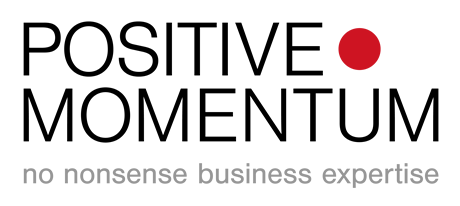My favourite challenge for experienced B2B salespeople and sales leaders is to ask them to tell me about the client that they know best. They smile knowingly, look at me confidently and normally proceed to tell me in great detail about their stunning relationship with somebody they call the decision maker (who is generally the Chief of something), the value of the hard fought deals they have done with them in the past and the pipeline of further treasure that will soon be yielded through the application of their sales genius. As fascinating as all this is, it does not of course answer the question…
What I’m really interested in is what they know about the client beyond how they might buy their stuff. Who are their customers, how do they attract new ones and retain the existing? What is their strategy for the next few years, who are the architects and what are the issues that could derail it? What are their top 5 KPI’s and are they each trending up or down? How is their employee attrition and engagement and what kind of people will they need to hire in the next few years? Who are the competitors that they worry most about and what are they doing about their threat? What are the names of their change projects, why are they doing them and just how far over budget are they running? And so on and so on. No matter what you sell or who you sell to, if you don’t find stuff like this interesting then you are probably in the wrong game.
The single truth that should liberate all of us who endeavour to sell to businesses is that we don’t really know our clients. When we all totally accept this and stop banging on about our multi-year, board level relationships and how clever we think we are, then we move to a mode of constant curiosity in the certainty that being progressively better informed means we can better service and sell to our clients.
This massively significant shift in my mindset changed everything for me as a young salesperson and still today is the most critical factor in whether I win or lose deals.
I was taught early on that ‘funnelling’ the customer towards a ‘close’ was the key. Of course we should ‘build rapport’, ‘identify needs’, ‘match those needs’ and then miraculously ‘gain commitment’ but the real drive was to get a deal just as quick as you could and then move on to the next victim opportunity. The difference for most of us then was that we had fewer and/or much less sophisticated competitors, we really did have genuine product/service differentiation as development cycles were so much longer and the truth was that buyers were significantly less informed. Given all these factors maybe, just maybe, this approach was excusable. Even if these excuses existed in the past, today they are long gone.
If you are operating in the belief that your product or service is so distinctive and differentiated that you really don’t need to constantly double down on your client knowledge then you are either very, very lucky (and it won’t last) or more likely totally deluded. Ask any product manager or marketer worth their salt and if they are honest they will tell you that in the 21st century moments of genuine product or service differentiation are at best brief. For the overwhelming majority of us our salvation exists in a differentiated relationship based on the certainty that there is always more to know – whatever you sell.
Clients in every sphere of business are desperate for suppliers that truly invest the time to understand their unique context. Of course they want your widget to be delivered on time, to work reliably and to provide some ROI but none of this means a thing if you haven’t done the hard yards of thorough research and genuine interest in their organisation and context. Maybe you are award winning/been in business for 300 years/believe you ‘specialise’ in a particular sector(s) but I’m afraid no one gives a stuff about any of that if you haven’t woken up to the fact that every individual client considers themselves unique and special and will always preference suppliers who treat them as such.
When we are reviewing what we don’t know about our clients – as we do often – we focus our vulnerability on three key areas:-
Performance
In their language, how are they doing across all of their metrics? Every organisation has their own set of colloquialisms for their performance – do we really know what they are and how they are trending? Whatever we think we know here becomes rapidly out of date, especially as reporting frequencies increase and new measures emerge.
Propositions
What did they sell in the past, what do they sell today and what do they want to sell in the future? How and to whom do they market, sell and service their stuff and how is this changing? Who do they respect and/or fear? We can normally scratch the surface here but the relationship riches available by going further are great indeed.
People
Who are the key executives guiding the business? Who is in ‘the arrivals hall’ and who’s in the ‘departures lounge’? Who might succeed who and who doesn’t sound like they’ve got an important job but is actually the real power behind the throne? Who is our key contacts boss, peers and direct reports and what’s the status of their relationship with each? Whether your clients have thousands of people or less than 10, constantly monitoring this stuff takes some proper detective work but will save hours of failed-pipeline-promises heartache.








